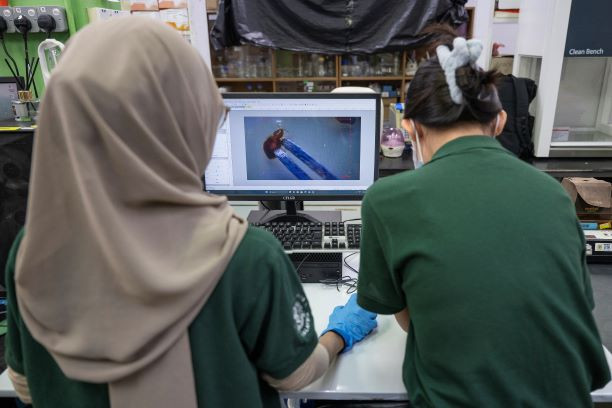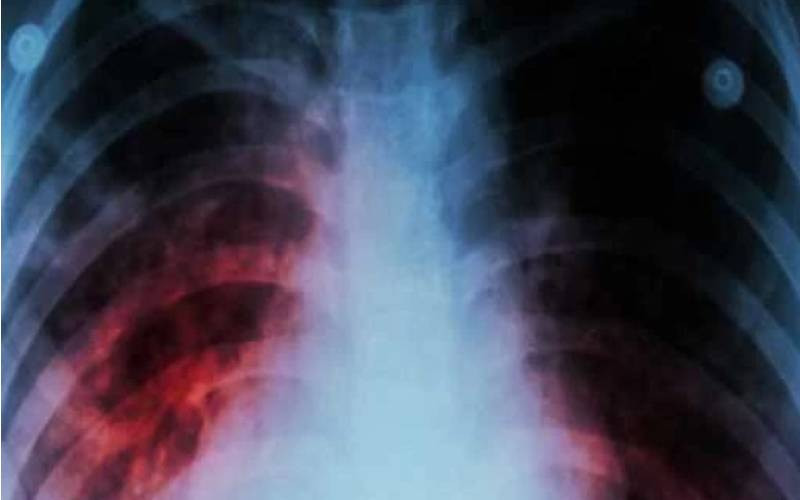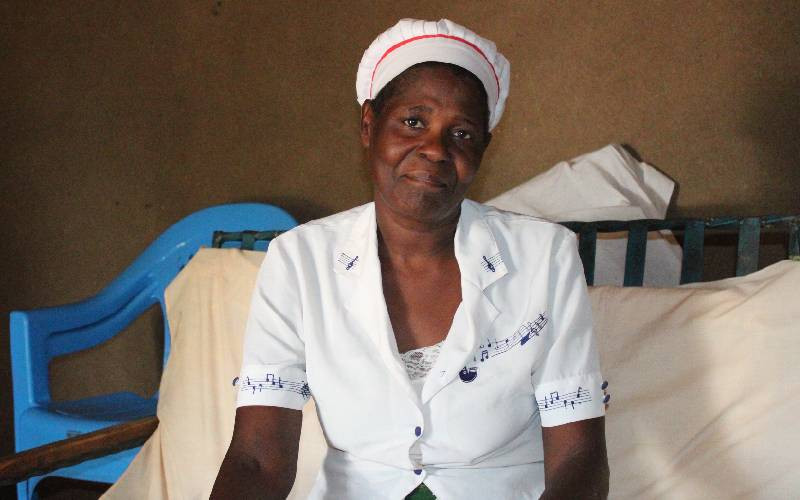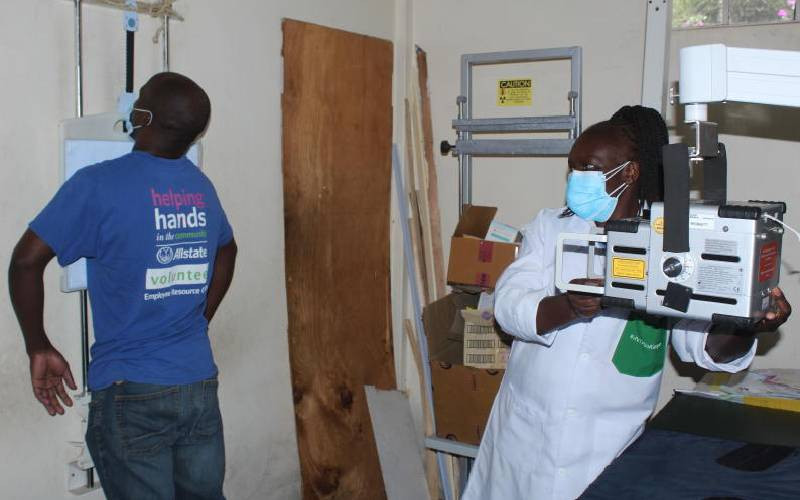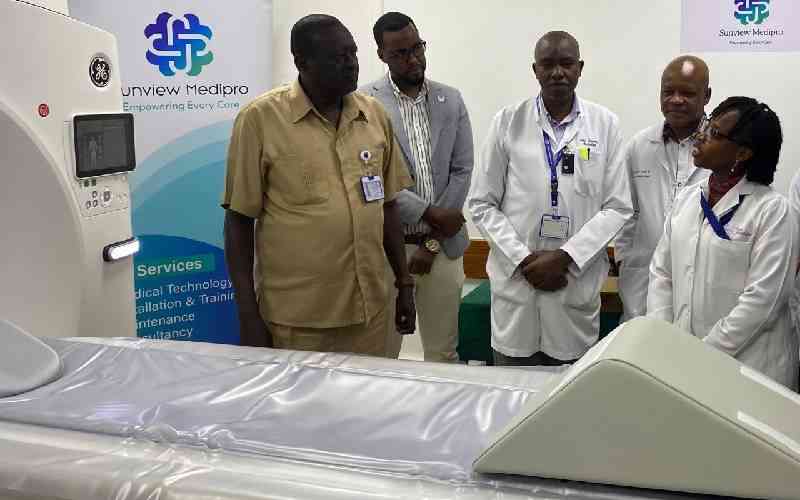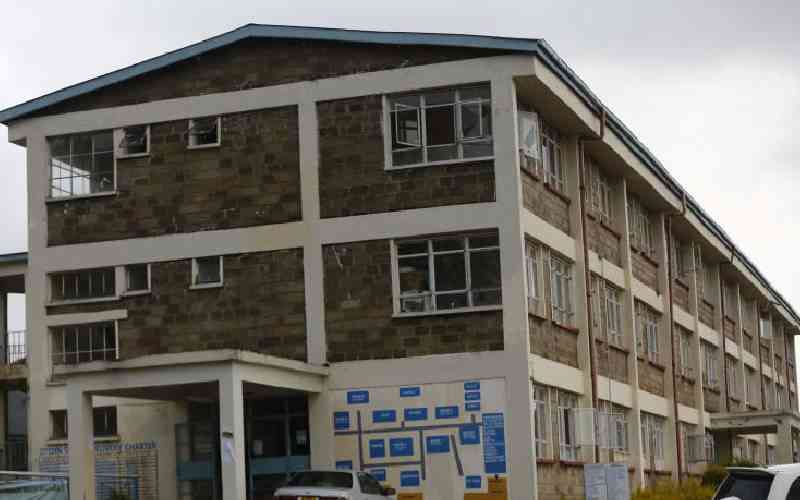
Congestion, malfunctioning medical equipment, and a shortage of healthcare personnel continue to plague Baringo County’s ailing health sector.
Residents are increasingly questioning the county’s ability to manage the health system, with some describing the crisis as irredeemable.
Joseph Lotuwun is the latest victim of what his family describes as negligence at Baringo County Hospital.
According to his sister, Mercy Acholima, she brought him to the facility around 2pm on July 1 2025. He died at 4:20am the following morning. She claims he went without medical attention for over 12 hours, despite complaining of severe pain.
“At the time, the X-ray machine was broken and the laboratory was inactive. We were told to buy painkillers to ease his suffering, even though his condition was critical,” she recalled.
The ordeal began earlier that day when Lotuwun was referred from Kolowa Health Centre as an emergency case, but no ambulance was available.
This is not the first time Baringo County Hospital has been accused of negligence. A lack of basic medical equipment continues to drive patients to facilities in Elgeyo Marakwet, Nakuru, and West Pokot.
Governor Benjamin Cheboi had promised to reform healthcare at the start of his second term—but progress has been slow.
In another case from 2021, a patient—Faith Jepkorir (not her real name)—recalled visiting the hospital with her feverish daughter.
A paediatrician ordered lab tests but dismissed her when she asked about the diagnosis. “He told me I wouldn’t understand. He prescribed medicine and told me to wait for admission,” she said.
Out of curiosity, she insisted on seeing the results results. When the doctor inquired about her educational background, he was surprised and eventually apologised and revealed they suspected malaria—though tests were negative.
“I had explained that my daughter had ingested sugar two days earlier and suspected tonsillitis, but he insisted it was malaria,” she said.
The child’s condition worsened that night, prompting them to seek treatment at a private hospital, where she was diagnosed with tonsillitis—ending days of suffering caused by misdiagnosis. Years later, nothing has changed. In 2021, five infants died at the same hospital allegedly due to dangerously high temperatures in incubators.
Jepkorir’s story echoes the experience of many across the country—dismissed, misdiagnosed, and neglected by overwhelmed public hospitals.
Deputy Speaker of the Baringo County Assembly, Kipruto Kimosop, attributes the poor state of healthcare to financial constraints.
“We must address the root causes. Healthcare funding has been inadequate since devolution,” he said, noting that Sh460 million is required to maintain essential medicine supply.
Dr Robert Pukose, chair of the parliamentary health committee, said underfunding remains a national challenge. He urged the national government to increase allocations to counties.
He noted that former district hospitals, now classified as County Referral Hospitals, differ vastly from Level Six facilities like Kenyatta National Hospital.“Level Six hospitals offer specialist services and have intensive care units. County hospitals like Baringo’s operate with fewer specialists and resources,” he said.
 The Standard Group Plc is a multi-media organization with investments in media
platforms spanning newspaper print
operations, television, radio broadcasting, digital and online services. The
Standard Group is recognized as a
leading multi-media house in Kenya with a key influence in matters of national
and international interest.
The Standard Group Plc is a multi-media organization with investments in media
platforms spanning newspaper print
operations, television, radio broadcasting, digital and online services. The
Standard Group is recognized as a
leading multi-media house in Kenya with a key influence in matters of national
and international interest.

